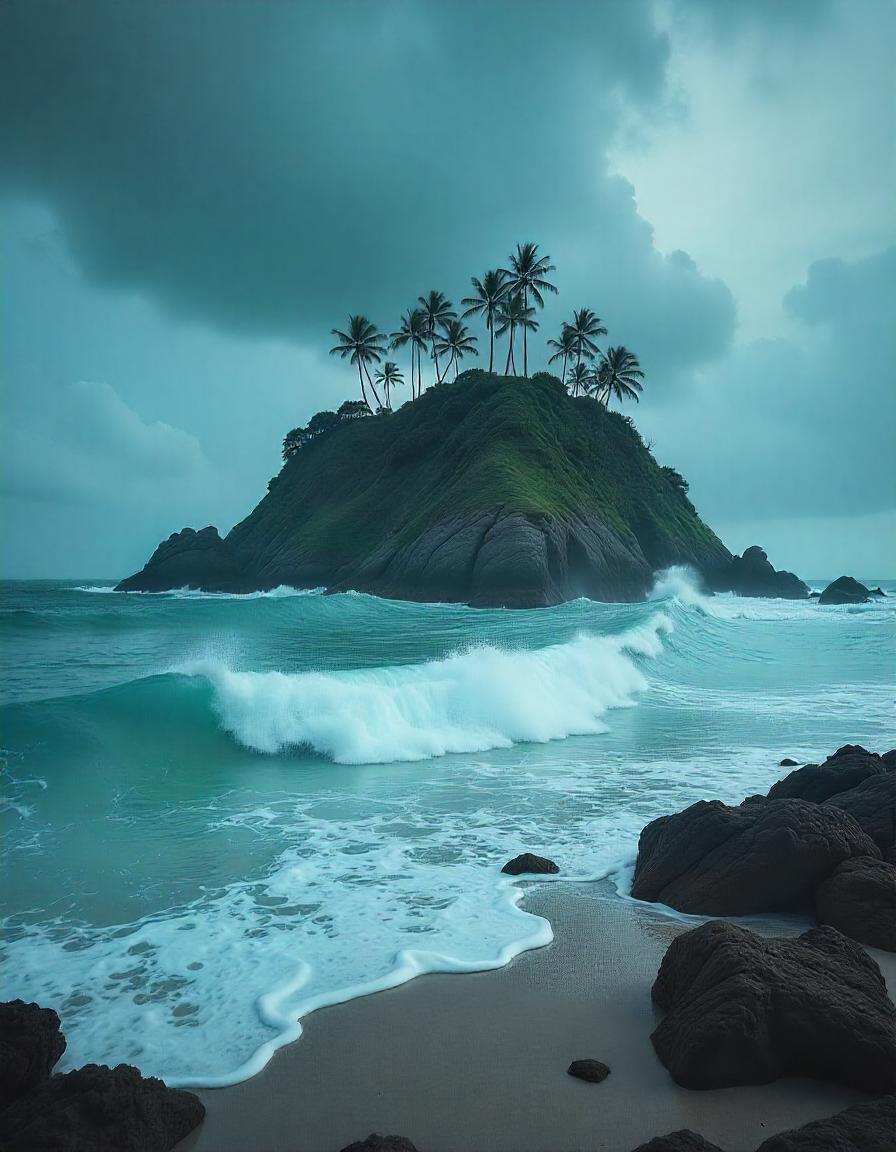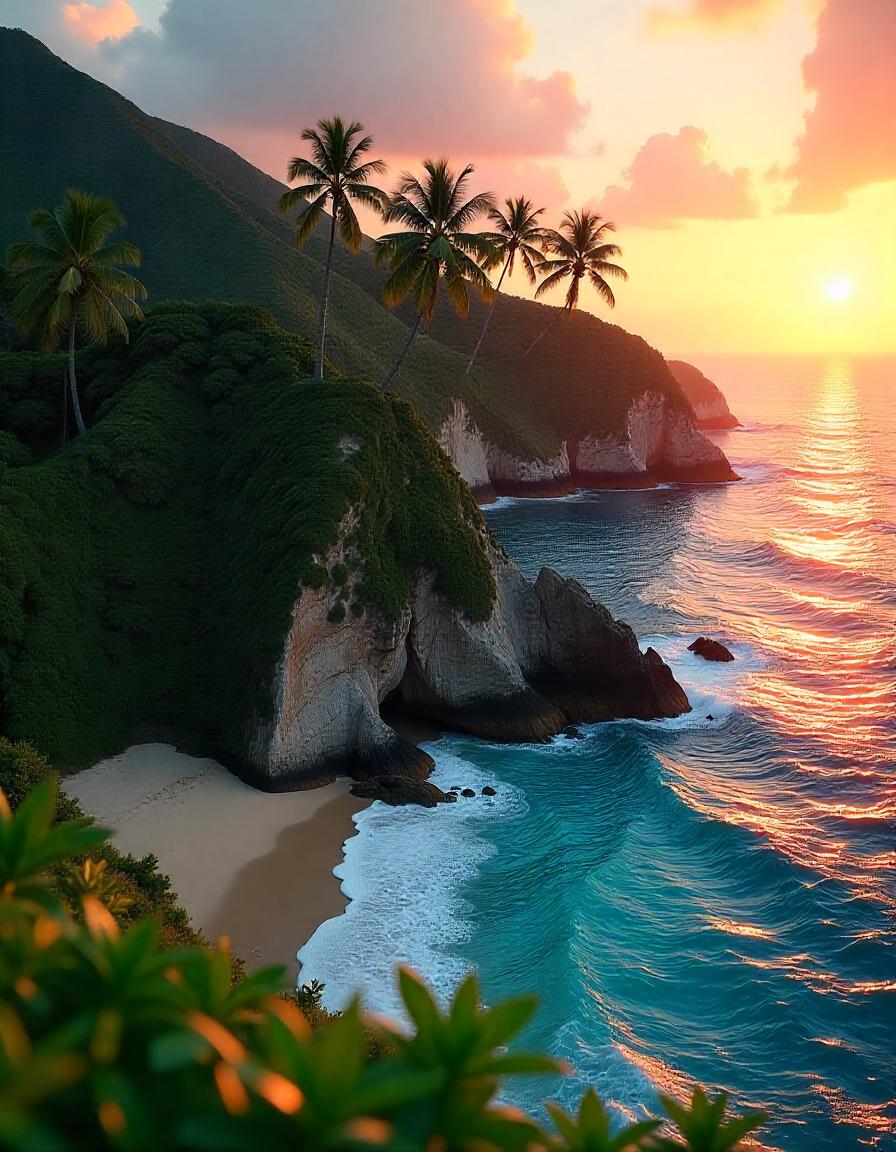reef pegasus isle
SURVIVAL SKILL SHORT STORY SPECIAL BY TEGEDAO
The sky had been clear, the ocean vast and endless beneath him. Wilson Kamaka, a commercial airline technician from Honolulu, had been a passenger on a routine flight when the engines sputtered and died. The next moments were chaos—a sharp descent, a terrifying impact, and then blackness. When Wilson awoke, he was adrift in an inflatable lifeboat, the wreckage of his aircraft scattered in the vast expanse of the Pacific.
Now, he stood on the golden sands of a small, uncharted island—a lone survivor. Reef Pegasus Isle, as he would later name it, was an isolated paradise with towering palms, crystal-clear waters, and an expanse of coral reefs stretching far into the horizon. But paradise was deceptive; survival would be an ordeal.
His ancestors, the great Polynesian navigators, had braved the Pacific using nothing but the stars and their knowledge of the sea. Could he now draw from that ancient wisdom to endure?

The sun beat down mercilessly as Wilson Kamaka trudged across the beach, his bare feet sinking into the scorching sand. The shock of survival had yet to fade, but instinct had begun to take over. He needed shelter, water, and food—and fast.
Scanning the shore, he spotted palm trees further inland. Coconuts. They would provide both sustenance and hydration. Wilson wasted no time, making his way toward the trees, using a broken piece of driftwood to knock down a few ripe coconuts. He cracked one open on a jagged rock, drinking the sweet liquid inside before scooping out the soft flesh. The taste was a small comfort, reminding him of home.
With a temporary source of food and water secured, Wilson turned his attention to shelter. The remains of his life raft, washed up further down the beach, would provide material. He dragged it inland, using palm fronds and driftwood to construct a makeshift lean-to against a rocky outcrop. It wasn’t perfect, but it would keep him shaded from the brutal sun and the frequent tropical downpours he suspected would come.
As the hours passed, Wilson continued exploring. The island was alive with sounds—birds calling, the distant crash of waves against the reef, the rustling of unseen creatures in the underbrush. He needed to understand this place, to map its resources if he had any hope of long-term survival.
Venturing beyond the tree line, Wilson discovered a freshwater stream trickling down from the island’s rocky interior. Relief flooded him. Water meant survival. He knelt to drink, the cool liquid a balm against his parched throat.
Further exploration led him to something unexpected—a series of large, weathered stones arranged in a pattern too deliberate to be natural. He traced his fingers over ancient carvings, symbols that echoed the stories of his ancestors. Wilson’s pulse quickened. Someone had been here before. Perhaps, long ago, this island had been a place of importance for Polynesian voyagers.
The realization sent a shiver down his spine. He was not just stranded; he was standing on history. As night fell, Wilson sat by his small fire, the embers flickering in the darkness. He wasn’t alone—not in the way he had thought. The island had a past, and perhaps, it held the key to his future.

Days passed, each blending into the next. Wilson had settled into a rhythm—hunting, fishing, and maintaining his shelter. Despite the daily struggle, he could not shake the loneliness pressing in around him. Each night, he stared at the ocean, searching for something beyond the waves, hoping for a sign.
One afternoon, as he speared fish near the reef, something shifted on the horizon. A shape, unlike the usual mirages cast by the sun, moved steadily closer. He narrowed his eyes. It was no driftwood, no debris. It was a vessel—a Polynesian voyaging canoe, its sails billowing in the wind.
Heart pounding, Wilson dropped his spear and scrambled onto the shore. He waved frantically, shouting at the top of his lungs. The canoe glided closer but did not reach land. Instead, it halted just beyond the outer reef, where the coral was too shallow for a vessel of its size to pass. A lone figure stood at the prow, his gaze fixed on Wilson.
The man was tall, his skin bronzed by the sun, his hair long and windswept. His eyes, dark and deep as the ocean itself, seemed to look through Wilson rather than at him. A chill ran down Wilson’s spine. Something about the figure was otherworldly.
The man raised a hand, not in greeting, but in acknowledgment. Wilson felt an inexplicable force ripple through him, as if the waves themselves whispered his name.
A voice, not spoken but felt, resonated within him. "We have heard your call. The sea has remembered you."
Wilson’s breath caught. Was he imagining things? Or had the gods of his ancestors sent their emissaries to this forgotten island? He took a step forward, compelled by an unseen force, and for the first time in weeks, hope flickered within him.

Wilson stood motionless as the figure stepped onto the reef, his form flickering like light on water. The air around him crackled with energy, an undeniable presence washing over Wilson like an unseen tide.
"Who are you?" Wilson whispered, his voice barely audible over the crashing waves.
"I am Tangaroa," the figure replied, his voice deep and resonant. "Guardian of the ocean, father of the tides. You have called, and I have answered."
Wilson trembled as realization set in. Tangaroa, the god of the sea, was not just legend—he was real. The ancient myths of his ancestors were alive before him.
Tangaroa stepped closer, his eyes filled with both wisdom and power. "You, Wilson Kamaka, are not here by accident. The currents have carried you to the heart of Polynesian knowledge. This island is sacred, a place where the ocean speaks, and the stars listen. You are here to remember."
Wilson struggled to find his voice. "Remember what?"
The god gestured toward the sky, where the constellations had begun to shift into patterns Wilson faintly recognized. "The ways of your people. The knowledge of the sea. You are more than a man lost in the ocean—you are a descendant of the great navigators. The ocean does not forget its children."
A deep longing stirred within Wilson. He had spent his life rooted in the modern world, disconnected from the traditions of his ancestors. Yet here, in the presence of Tangaroa, he felt something awaken inside him.
"I want to learn," Wilson said, his voice steady now. "Teach me."
Tangaroa nodded. "Then let the sea guide you, and I will show you the path home."
With Tangaroa’s guidance, Wilson boards the voyaging canoe, its hull carved from sacred wood, its sails catching the celestial winds. Using the stars, the currents, and the whispers of the sea, Wilson steers toward Hawaii, rediscovering the art of Polynesian navigation. As he reaches the shores of his homeland, he is no longer just a survivor—he is a bearer of ancient knowledge, entrusted to share his ancestors’ wisdom with the world.